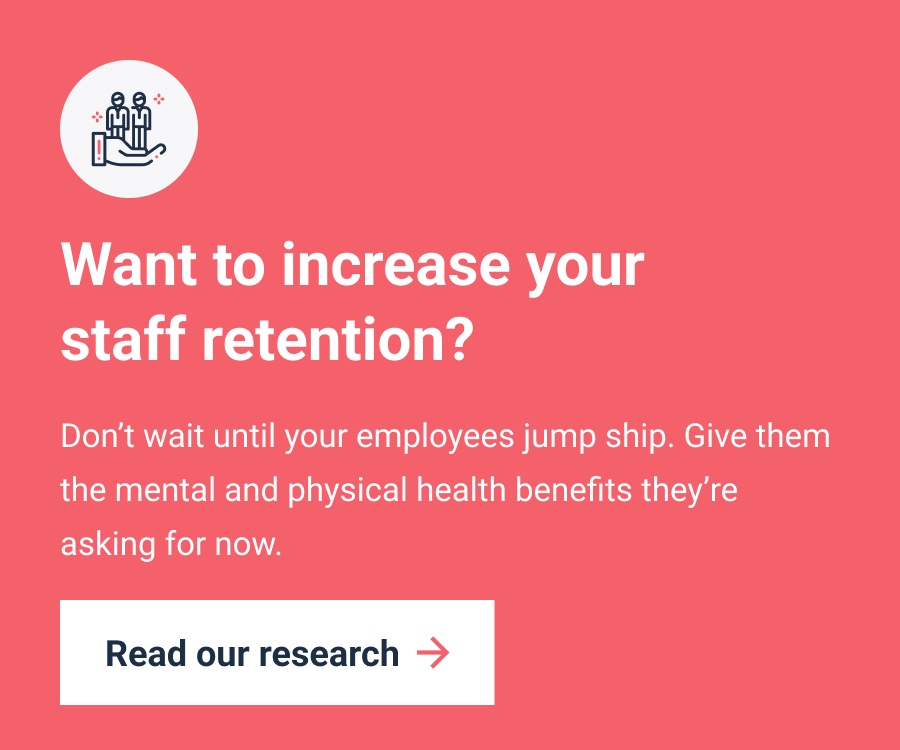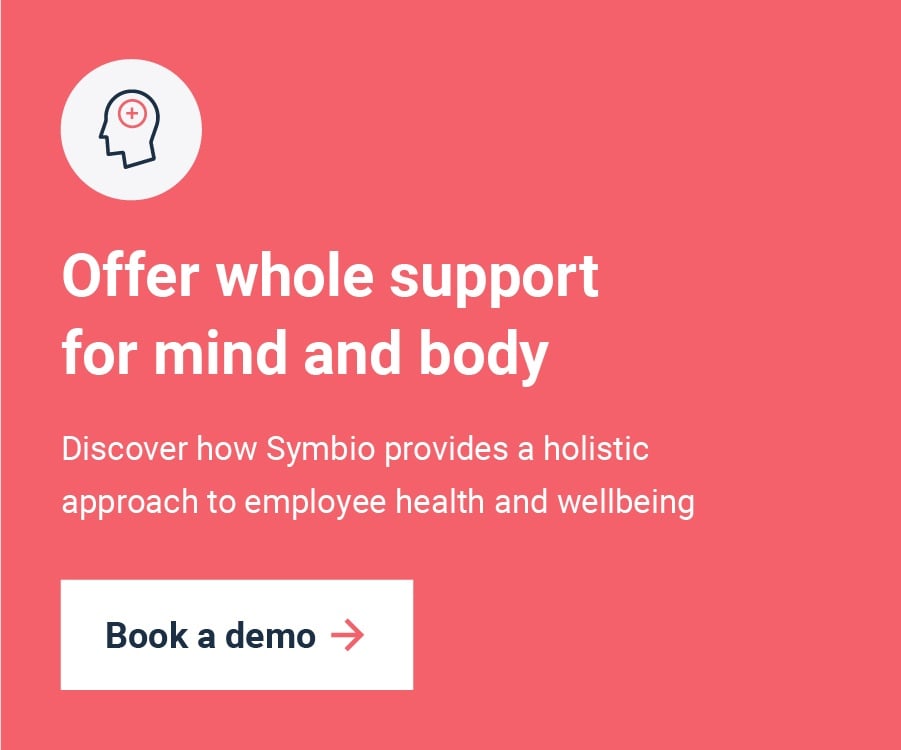Period health is a divisive topic. Not everyone wants to talk about it—or indeed, hear about it.
And yet half the population have periods at some point in their lives. As such, it will affect roughly half your workforce.
Consider these statistics:
- Seventy-four percent of menstruating employees feel it’s necessary to hide menstrual products at work
- Sixty percent said they’d be uncomfortable talking about menstruation with colleagues or managers
- Thirty-two percent of men said it’s unprofessional to talk about periods at work
But despite this reluctance to be open about it, menstruating workers undergo some symptoms that they sometimes can’t hide. Nor should they have to. Let’s examine what these are, and why period health at work matters.
What are the physical impacts of periods?
Physical symptoms of periods vary from person to person. One might only bleed for three days while another for nine. One person might experience debilitating abdominal cramps while another will get headaches.
Physical symptoms also include:
- Muscle and joint pain
- Tender breasts
- Diarrhea or constipation
- Back pain
- Fatigue
- Acne
These symptoms can change over time. After pregnancy and breastfeeding, periods can become particularly heavy and long. Your perimenopausal employees, however, may have irregular and unpredictable periods.
It’s rare for a menstruating person not to experience any physical impact. But often, physical symptoms are only part of what menstruating employees tolerate.
What are the impacts of periods on mental health?
Periods can cause mental changes, including:
- Mood swings
- Feeling upset, anxious or irritable
- Changes in appetite and sex drive
- Crying spells
- Poor concentration
- Social withdrawal
These are often listed as symptoms of premenstrual syndrome (PMS). However, this term is misleading. This is because people can experience these symptoms in the first few days of their period, as well as in the weeks leading up to it.
No matter when these symptoms appear, there’s a strong chance your menstruating employees will experience them. This could impact their mental health and affect how they interact with others.
Why does period health matter for women’s careers?
The Equal Pay Act of 2010 states that it’s illegal to pay people of different genders differently for the same role in the UK. But the reality is that women earn just 90p for every £1 a man earns.
There are a number of factors impacting gender inequality when it comes to pay. For example, the motherhood penalty costs employees who give birth a seven percent pay reduction per child. (There’s also the fatherhood premium—a positive relationship between pay and their number of children.)
Then, take into account that many people must take unpaid sick days during their periods. Those who don’t take time off can be less productive due to the severity of their symptoms, with some losing as many as nine productive days a year.
Maybe they can’t afford to take time off. Or, perhaps they’re all too aware of the stigma surrounding periods. They might think needing time off for menstrual symptoms will cost them a promotion in favour of someone without a uterus, for instance. As a result, they may work through physical and mental symptoms that affect their wellbeing, as well as their job performance.
To protect your staff’s overall health and maintain your company’s productivity, solving period health at work is critical. But how do you do it?
Offer menstrual leave
Some countries are already leaps and bounds ahead of the UK in terms of period health at work. Many Australian businesses offer ten days of menstrual leave to employees, recognising it as a necessity in retaining talent. And Spain is set to pass menstrual leave as legislation, giving every menstruating employee the legal right to take another three days of sick leave per year.
Adopting similar benefits in your business will prevent your menstruating employees from working through debilitating pain and emotional stress. They’ll also feel that you understand their particular difficulties, which can boost engagement.
Provide free menstrual products
Period poverty doesn’t just occur in developing countries. Inflation is driving the cost of menstrual products up, with 28 percent of people aged 21 and under struggling to afford them.
You can help your employees out by providing free menstrual products. But, you must remember to put these in all employee bathrooms, as some of your trans and non-binary staff get periods too.
Implement manager training
As we’ve said, not everyone experiences periods the same way. And around half of your workforce won’t experience them at all. As such, some managers might not understand how a heavy or painful period can affect their staff.
It’s crucial to educate these managers. Not just on period health, but on how to support their employees.
You should also train them on how to handle difficult situations sensitively. Just a few years ago, the Bobby Dodd Institute fired a woman for bleeding onto her chair and the carpet during two unexpected heavy perimenopausal periods. The woman sued them, resulting in the company settling out of court for an undisclosed sum.
Give menstruating employees support
Many people won’t admit they’re in too much pain or emotional stress to work for fear of repercussions. Also, while periods may not be a taboo subject in the UK, people still feel embarrassed talking about them. For these employees, you should provide clinically-validated and accessible health advice.
Symbio is a digital health and wellbeing solution that provides your employees with specialist, personalised content for their symptoms. It also comes with a wellbeing check-in feature that allows them to understand their holistic health better.
Your staff can use Symbio to book a virtual appointment with a clinical specialist, so they can receive treatment and advice for their physical symptoms. They can also access employee assistance programmes (EAPs), too, so they have the freedom to talk openly about their period health.
To discover how Symbio can benefit your menstruating employees and your company, book a demo.



-1.jpg?width=800&height=450&name=image%20(26)-1.jpg)


